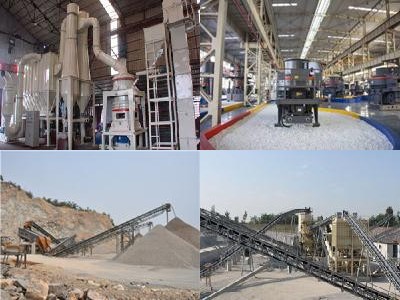Don't miss our holiday offer - 30% OFF!
How Is A 2000 Tons Per Day Gravel Production Line Set Up?

Site Evaluation and Preliminary Planning
Setting up a 2000 tons per day gravel production line involves thorough site evaluation and preliminary planning to ensure operational efficiency and environmental compliance. Initially, the suitability of the location must be assessed in terms of geological conditions, accessibility, water supply, and proximity to raw material sources. A thorough topographic and soil analysis is conducted to determine the site’s bearing capacity and to design the layout of the production line effectively. Compliance with local regulations and environmental impact assessments are also essential components in this stage to avoid legal and ecological challenges.
At Zenith, we emphasize the importance of detailed planning and consultation. Our technical team offers comprehensive site evaluation services to assist clients in optimizing their production lines. Leveraging our extensive experience, we help identify potential challenges and create tailored solutions to mitigate them. Additionally, our project management services ensure the smooth progression from initial planning to implementation, guaranteeing that every facet of the production setup aligns with your operational goals.
Essential Equipment and Machinery
The efficacy of a gravel production line depends heavily on the quality and suitability of the equipment used. Typically, the key machinery includes jaw crushers, impact crushers, vibrating feeders, screens, and conveyor belts. Zenith’s PE Series Jaw Crushers are renowned for their ability to crush even the toughest rocks into well-graded gravel. For secondary crushing, our PF Series Impact Crushers ensure high reduction ratios and precise product shapes. Vibrating feeders and screens from our YK Series efficiently handle the sorting and feeding processes, ensuring seamless material flow.
To complement these primary machines, Zenith also provides auxiliary equipment like sand washers, dust collectors, and mobile crushers. Our XSD Series Sand Washers, for example, play a crucial role in removing impurities from gravel to improve quality. For clients requiring greater mobility and flexibility, Zenith’s mobile crushing solutions integrate seamlessly with primary crushing equipment, thereby enabling productive operations even in the most challenging environments. Each piece of equipment is designed with durability and efficiency in mind, ensuring high productivity rates and an optimized production line.
Installation and Commissioning Procedures
The installation stage is critical, ensuring that all machinery is correctly positioned and duly secured for safe and efficient operation. Building foundations for heavy equipment, erecting structural supports, and setting up electrical and control systems are part of this phase. Zenith’s experienced engineers oversee the entire installation process, guaranteeing adherence to technical specifications and safety standards. Detailed user manuals and training sessions are provided to operators to ensure they can handle the machinery proficiently.
Commissioning involves a series of tests and adjustments to ensure each unit performs to its full potential. Systematic testing of individual components, followed by integrated operational checks, identifies and rectifies any issues before full-scale production. Zenith’s technicians conduct performance evaluations to fine-tune the equipment for optimal output. Regular maintenance guidelines and post-installation support are also provided to ensure sustained production efficiency. At Zenith, we not only supply high-quality equipment but also offer end-to-end services that help clients achieve their production targets reliably and effectively.